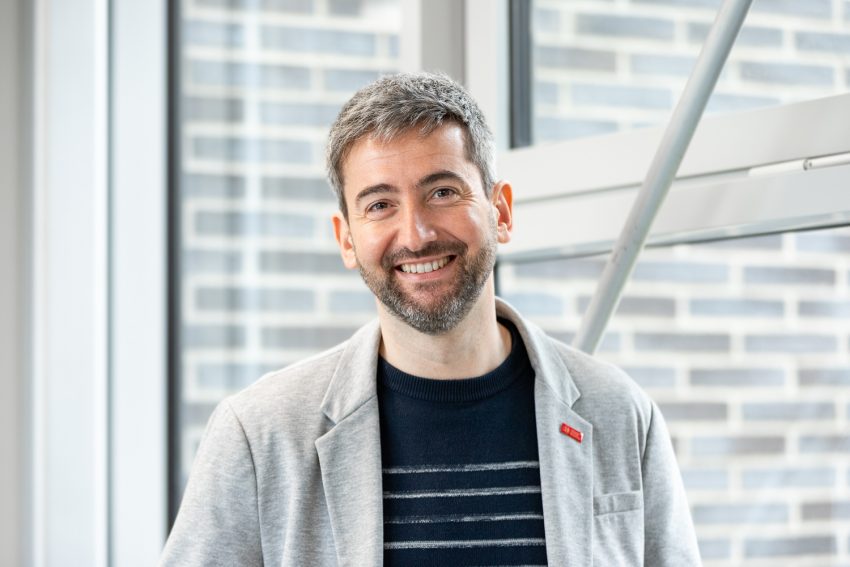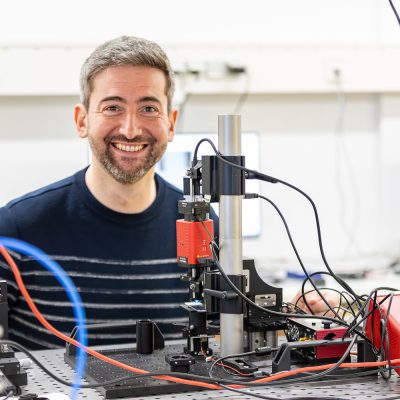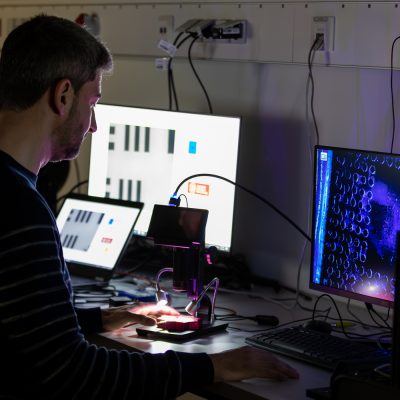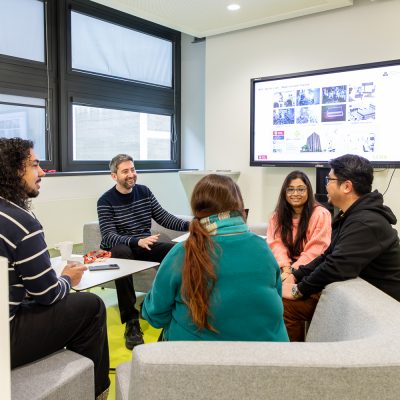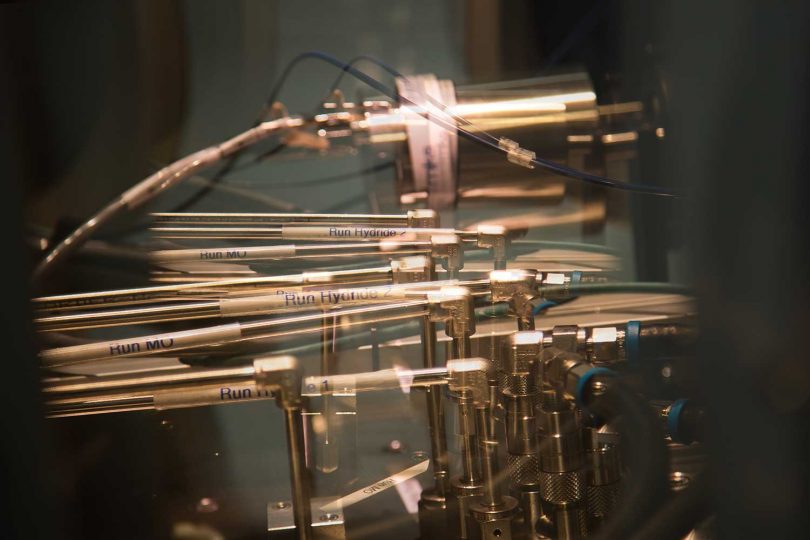Pioneering work in Braunschweig How a leading researcher from Barcelona is pushing the boundaries of nano and quantum technology
Professor Daniel Prades has been working at TU Braunschweig since 2024, as the first Alexander von Humboldt Professor at the university, bringing unconventional ideas, interdisciplinary thinking and a clear eye for practical innovation to his work. In the QuantumFrontiers Cluster of Excellence, he conducts research into nano and quantum sensors. But who is this man, who sees himself more as an inventor than a researcher, and why is his approach so crucial for the future of intelligent technologies?
Professor Daniel Prades has been living and working in Braunschweig for over a year. “I’ve settled in well – the move and starting my new job at TU Braunschweig went smoothly. In that sense, I was pleasantly surprised that the European Union’s idea actually worked – it went so seamlessly that it felt like moving within my own country” he says. As an established top researcher at TU Braunschweig, he is providing important impetus in research on nano and quantum sensors.
“What I really want in life is to learn.”
Professor Daniel Prades
Prades likes to think outside the box: “My work has more to do with innovation than classical research. I look for practical, immediate effects. At the same time, I pursue approaches that lie outside the mainstream. What I really want in life is to learn – not just in depth in individual subject areas, but across the board.”
This approach has enabled him and his team to make discoveries and enjoy success in both in technology transfer and in scientific publications. “I see myself more as an inventor than as a pure researcher.”
- Professor Daniel Prades
- Bildnachweis: Kristina Rottig/TU Braunschweig
Making better decisions
Against this backdrop, Prades explains the relevance of his work: “We want to ensure that the information provided by sensors and electronic devices is reliable – that we can trust it.” Technologies such as the Internet of Things, smartwatches, smartphones and artificial intelligence generate huge amounts of data through microelectronics, but this data is not always accurate. The aim of his research is therefore to develop sensors that can evaluate the accuracy of the data they provide. “We are convinced that this will enable better decisions to be made.”
The perfect location
He points out that this future technology is based on micro-LEDs and other tiny photonic and electronic components, making the Nitride Technology Centre at TU Braunschweig the perfect place for this type of research. “For me, it just made sense to be here.”
How does TU Braunschweig position itself in the field of nano and quantum technology, given that it has its own cluster of excellence and is a co-founder of Quantum Valley Lower Saxony (QVLS)?
“We have exceptionally competent researchers and international experts of world-class calibre,” Prades emphasises. “What we can still improve is our international appeal.”
“I prefer to focus on collaboration – on tandem solutions.”
Professor Daniel Prades
For him, a functioning scientific ecosystem is essential. His approach in Spain as well as in Germany is clear: he does not invest in skills that are already available externally. “I see no point in duplicating existing setups. I prefer to focus on collaboration – on tandem solutions.” This attitude aligns in well with Ecoversity, the partnership-based scientific culture of TU Braunschweig, known as Ecoversity, which focuses on long-term, sustainable cooperation. He collaborates particularly closely with the Physikalisch-Technische Bundesanstalt (PTB) in Braunschweig. Precision and reliability, particularly with regard to sensor-based information, lie at the heart of his research. “The PTB is a unique partner in this regard.”

